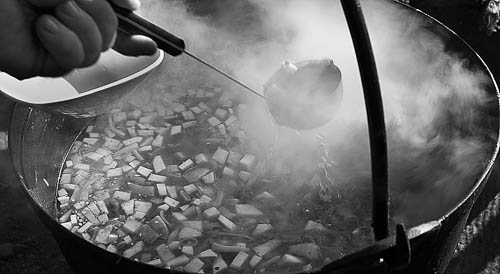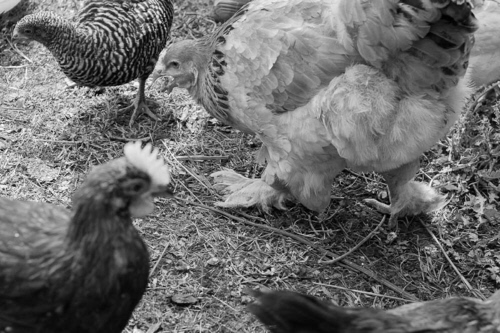Norway’s first and largest community garden or community-supported agriculture is located at Øverland farm in Bærum located west of Oslo. About 450 share owners are cultivating vegetables on an area of 1.6 hectares. The community garden is characterised by, among other things, common harvest, common risk, dialogue between producer and consumer in addition to full openness about incomes and expenses.
Øverland Community Garden was founded in in 2006 and cooperates with the royal Norwegian society for development, which owns the farm. It is being cultivated organically and it has four workers who are receiving a salary for tending the garden and facilitating harvesting for the part owners. This entails, among other things, practising crop rotation such that the same type of plant is grown in the same field every 11 years, buying and planting seeds, and making weekly plans for the part owners in order to let them know what to harvest where. Besides, a plan for how to tend the garden is set up in winter and the part owners are encouraged to suggest improvements.
About 35 types of vegetables are grown, but due to lots of work and too few workers, no seeds are kept. Instead, organic seeds are bought yearly. No artificial fertilisers are used, but sheep dung from Persbråten farm is applied to those plants which need it most like cole crops, squash, pumpkin, and leek. In order to aid the growth of some of the plants, a cloth with holes is laid on the ground and plants are planted where the holes are. Another technique being used is to cover growing plants with a cloth in order to prevent insects from eating them or laying eggs on them. The cloth lets rain and sunshine through, but it’s only partly effective in keeping insects out. It has also to be weighed down with stones because the wind often uncovers the plants.
The share owners are encouraged to contribute to the cooperative by imparting their knowledge e.g. beekeeping, flowers, herbs, conservation techniques, recipes, and so on. On select Saturdays, an activity called Green Fingers is arranged, when the share owners can contribute to and be taught how to run an organic community garden. Besides, Green Café, which is arranged on select days, is used for enlightening a relevant subject. Since some of the share owners are very busy, the gardener occasionally sets up signs where they can do weeding for as long or as short time as they are willing to work. Living in a stressful time, the gardener told me that he’s told that they find weeding relaxing, they breathe easier, time stands still and they get in touch with nature.
Harvesting of the vegetables occur from May/June to October/November. During this period the share owners receive regular e-mails telling them what can be harvested and how much. The garden workers have also set up signs showing where the different vegetables can be found and how to harvest them. Baskets, gloves and tools are readily available together with a washing place. You can harvest fresh, organic and locally cultivated vegetables more or less weekly in the growing season, helping to give the food you are eating an identity. You can find information on the vegetables together with recipes on the web site of Øverland.
The share owners don’t participate just in order to eat. Getting in touch with the soil, learning how to produce food, solving the challenges which occasionally arise, and meeting like-minded people are also vital parts of what it is to be a share owner. This site provides an excellent overview of how to maintain a vegetable garden.
This year, one group was formed in order to raise chickens at Øverland. 40 fertilised eggs were bought and put in incubators, leading to that 24 chickens were hatched. Now, seven different types of chickens live in a chicken coop at Øverland, walking around freely and eating compost from the vegetable production. Being just a few months old, nobody knows which are males and which are females. A work in progress, indeed.
Last but not least, a thanksgiving party is arranged yearly in autumn where the share owners make a delicious soup using vegetables from Øverland, butter with herbs, bread, etc.
If the present trend continues, every third farmer in Norway will be gone in 10 years, and it might be an idea to facilitate conditions for creating community gardens all across Norway, near towns and in the countryside. Many farmers would probably have a more satisfying work, experience less economic risk since the share owners pay in advance and have more faith in their work if they could cooperate with willing share owners.


